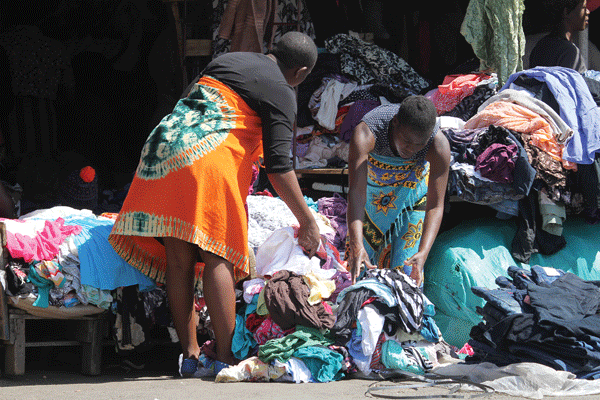Bulawayo Vendors and Traders Association (BVTA) has launched a two-year programme which seeks to effectively lobby and advocate for better working conditions and respect of rights for women in the Informal Cross Border Traders sector (ICBTs).
This came out during an inception meeting, held on Tuesday, which was attended by women in the informal sector, councillors, and representatives from the Registrar General`s department.
The Women ICBTs Voices programme came to light through research that was conducted by BVTA with other partners which noted that there was a need to pay more attention to the plight of women in the informal sector.
Speaking to CITE, BVTA Director Michael Ndiweni said they are looking forward to engaging the Ministry of Home Affairs and negotiate special passports for women in the informal sector.
“Since we have met with government bodies such as ZIMRA and Immigration we think there will be a way forward because in the past the government made decisions without consulting the informal sector and on our end, we met on our own, so we hope that this programme that brings the government, different associations and City fathers will come up with concrete solutions,” said Ndiweni.
“We hope to engage the Ministry responsible for passports to sort out the issue of passports for women in the informal sector, maybe have special passports for someone who wants to go and order their goods in neighbouring countries or have emergency documents for someone who wants to buy their goods and come back instead of ordinary passports.”
Meanwhile, BVTA Systems Coordinator, Abigail Nleya said the research revealed a number of challenges faced by women in ICBTs.
“Women in ICBTs face a number of challenges such as limited access to finance, difficulties at border posts, foreign currency shortages, excessive duty payment.
“These days securing a passport is a challenge but their businesses have to continue so thus you find that most of them end up being sexually harassed when they try to cross the border without proper documentation,” said Nleya.
She said women make up the majority in the informal sector and yet they have poor infrastructure in their working zones.
“It is currently estimated that 7 million people in Zimbabwe will need food aid, I think this number has increased, within this broader aspect, cross border traders contribute significantly to the livelihood of many families and the economy as a whole, at the same time they are amongst the most vulnerable and in a deeply entrenched patriarchal system women are even more vulnerable as a result they lack self-esteem and fear of challenging the status quo,” said Nleya.
In addition, Njabulo Moyo from Transparency International Zimbabwe (TIZ) said the government should put measures to assist and protect women in ICBTs.
“There is a lot happening at borders during goods clearance, we urge government to put measures that are going to help women in ICBTs,” said Moyo.
“We also note that there is corruption happening in the informal sector forcing some women to use their bodies to pay for certain rates requirements, we note also bribery happening in undesignated areas where they operate in.”
Meanwhile, ward 22 Councillor, Rodney Jele urged women in the informal sector to attend council meetings so that they can discuss problems they face in the sector.

